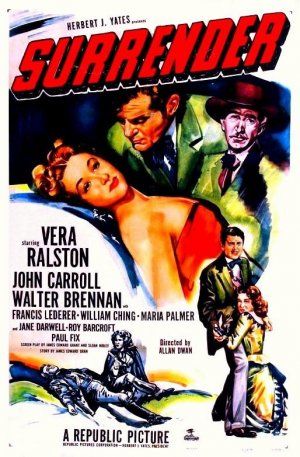
Remember that Johnny Cash song about a guy trying to get a free car while working for General Motors, so he sneaks out one piece at a time? Great idea, but it takes him so many years to smuggle enough parts out to build his dream machine that when he puts all the parts together, it ends up looking like a jigsaw puzzle where the pieces don’t fit.
I just saw a film version of this idea titled Surrender. What kind of movie is it? (slips into Johnny Cash voice) “Well, It’s a ’49, ’50, ’51, ’52, ’53, ’54, ’55, ’56, ’57, ’58’ 59′ automobile…”
Except it’s a movie, not a car, so the best way I can describe it is that Surrender is a Western noirish bromance version of a French farce that’s also a singing cowboy film that keeps quoting Victor Hugo’s Les Miserables. It’s one strange film, and who else could be better placed at the center of this Hungarian goulash of a movie than Vera Ralston—okay she’s Czechoslovakian, but with this low-budget Republic production, why quibble with geography?

Vera Ralston plays Violet Barton, a version of Scarlet O’Hara gone West, but since things in the West are bigger and more extreme, by the end of this film, Violet (even her name pushes us to the end of the spectrum) has made the character of Scarlet O’Hara look like a church mouse.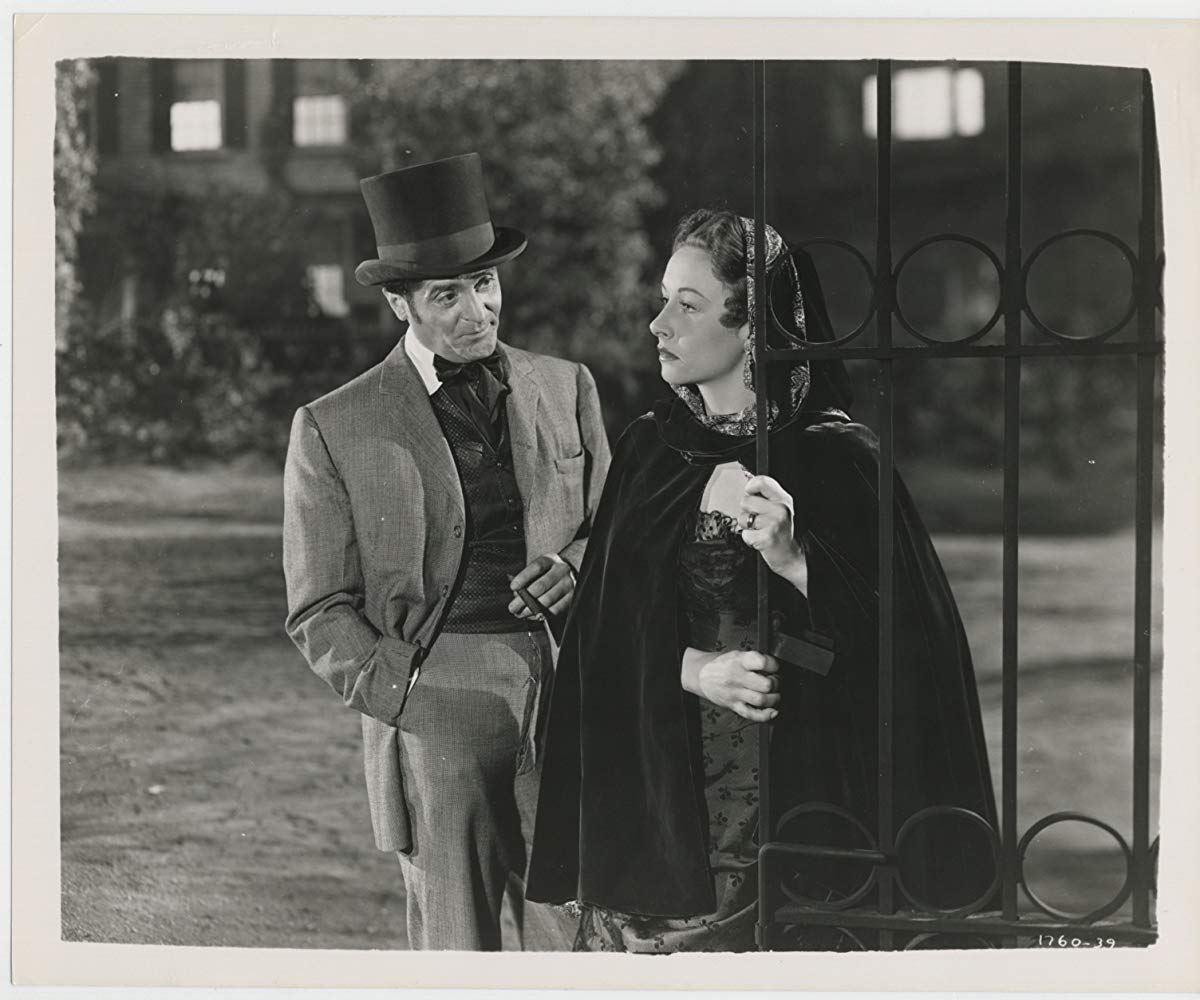
It’s Texas after the Civil War and Violet, eager to climb the social ladder of success, has a problem—her husband Vann (Francis Lederer) is in jail. Violet deals with this situation by pretending it doesn’t exist, and meeting up with her sister Janet (Maria Palmer) in a border town called La Mirada, Violet sizes up new prospects.
Two men (not knowing she is already married) are immediately interested in her, a gambler Gregg Delaney (John Carroll), and his best friend, newspaperman Johnny Hale (William Ching). Violet at first prefers Gregg, but when she finds out that Johnny is rich, she switches sides and seduces Johnny into marrying her. Violet has conveniently forgotten to tell Johnny that she is already married, a dangerous situation that escalates when Vann breaks out of jail, and learns of her bigamous marriage. When Vann finally confronts Violet, his anger turns to thoughts of blackmail, a threat Violet neatly solves by shooting her husband, thus eliminating two problems (a deadbeat husband and the fact she’s a bigamist) with one bullet.
Violet continues to demonstrate her efficiency at solving problems by then pinning the murder she has committed on Johnny, who is arrested by town’s sheriff, Bill Howard (Walter Brennan). Violet, in danger of being overtaken by events, flees town with her true love Gregg, but hasn’t counted on Sheriff Howard and his posse taking an unkind attitude to all of her wheeling’s and dealings and following her into the desert.
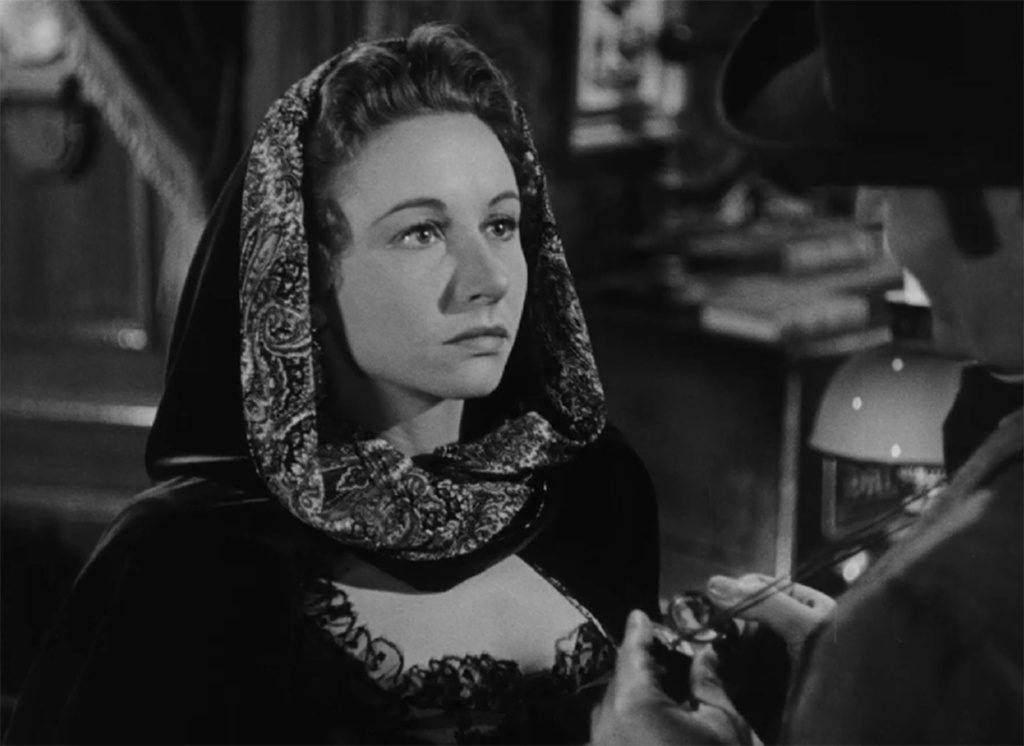
Surrender was designed to be a vehicle for Ralston, but Vera’s vehicle, like Johnny Cash’s multiple-year car, has a lot of problems, starting with Ralston herself. Although I know she has fans of her acting ability, I am not one of them, and Ralston single-handedly produces a talentless vacuum at the center of the story, made agonizingly worse because the entire premise of this story is that she is so charismatic and irresistible that no man can resist her. That’s a challenge that might elude any living human, but actors John Caroll and William Ching are clearly not up to the task.
Ralston has been ridiculed over the years about her acting—surely there have been worse—far worse, but during her most dramatic scenes with other actors, she has the unfortunate habit of fixing her gaze at some far off (perhaps infinite) distance above everyone’s heads, staying focused on this singularity until the scene, or perhaps time itself, ends.
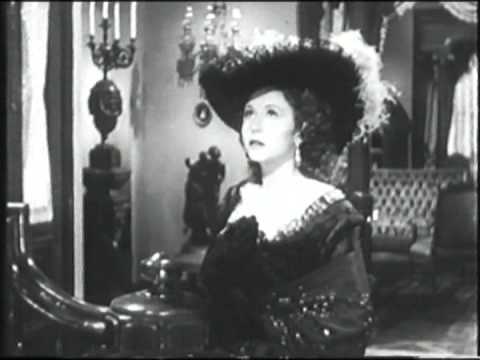
Her gaze reminds me of what has been called the ‘1000-yard stare,’ the look soldiers get during war, when they’ve been traumatized by combat, and become emotionally detached from their surroundings, perhaps reliving some past battle.
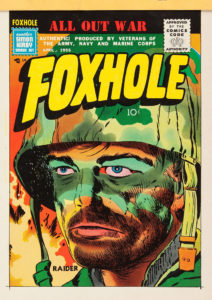
Foxhole, a 1950s comic book, with cover art by Jack Kirby
Ralston, of course, was not thinking of prior battles, rather her stare resulted from being totally focused on enunciating her lines (all vowels and consonants intact and well-shaped) with a goal of not risking future stardom by exposing her Czech accent to the boom mic and thus the world. The extreme focus to give impeccable, accent-free line readings gives her face an odd, deadened appearance, as if she was taking part in a nightmare scenario of having just returned from the dentist after multiple Novocain injections, only to find herself in a surprise audition for a part.
Ah, but I’ve come not to bury this film but to praise it. The combination of these elements I’ve discussed don’t make for great cinema art, but as camp, Surrender’s value is through the roof.
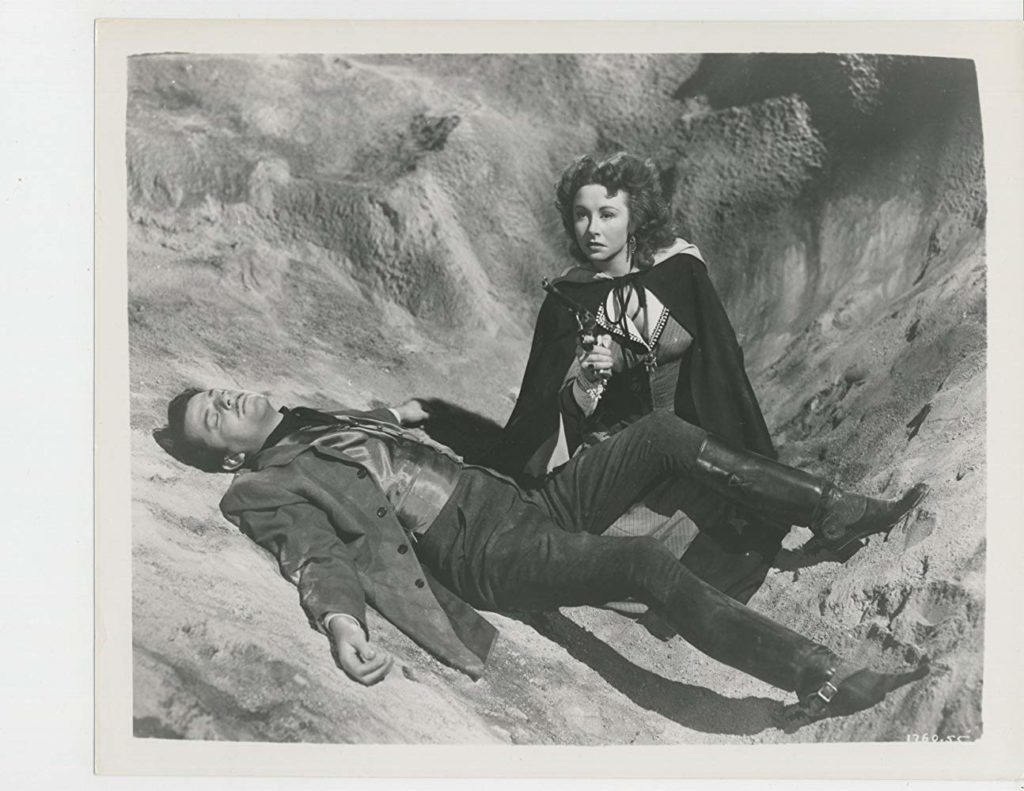 Even more importantly, Surrender is directed by Allan Dwan, and Dwan, who was making great movies since near the dawn of the silent era, is incapable of making a movie that isn’t worth watching. Somehow he puts all these disparate elements of Surrender into a bag of Frankenstein-like alchemy and shakes it so hard (or considering the Frankenstein comparison, gives it such a shot of electricity)—that it all comes out onto the screen beautifully lit and wonderfully edited … and as a topper, it even has a “l’amour fou” ending that seems lifted directly out of Gun Crazy, which came out nine months earlier the same year. But it’s all somehow so fitting, because if there is any truly spectacular example of l’amour fou in Hollywood, it’s Vera Ralston and Republic Pictures.
Even more importantly, Surrender is directed by Allan Dwan, and Dwan, who was making great movies since near the dawn of the silent era, is incapable of making a movie that isn’t worth watching. Somehow he puts all these disparate elements of Surrender into a bag of Frankenstein-like alchemy and shakes it so hard (or considering the Frankenstein comparison, gives it such a shot of electricity)—that it all comes out onto the screen beautifully lit and wonderfully edited … and as a topper, it even has a “l’amour fou” ending that seems lifted directly out of Gun Crazy, which came out nine months earlier the same year. But it’s all somehow so fitting, because if there is any truly spectacular example of l’amour fou in Hollywood, it’s Vera Ralston and Republic Pictures.
Coincidence, you say? Perhaps. All I can say is that I was entertained by this film, and yes, I did surrender to Surrender … and so may you.
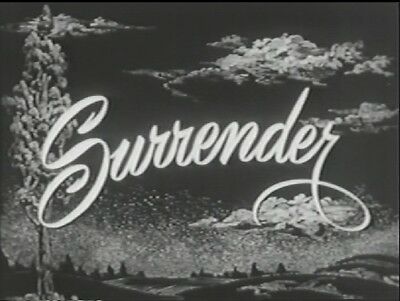




One thought on “Surrender to Surrender (1950) starring Vera Ralston and directed by Allan Dwan”
Ah, the doubtable Věra Hruba — and surely you meant that the director had been making films since the dwan of time (an error easily forgiven under abnormal circumstances)